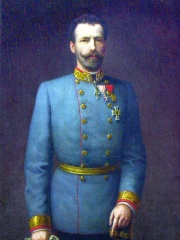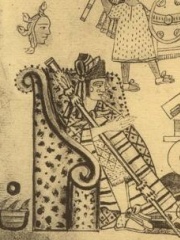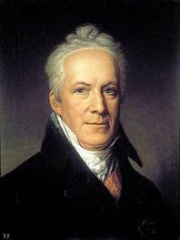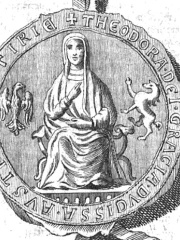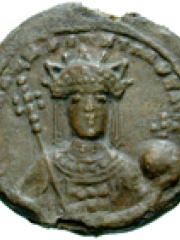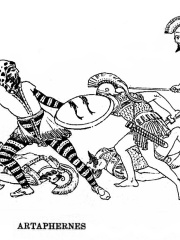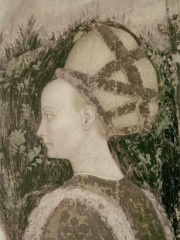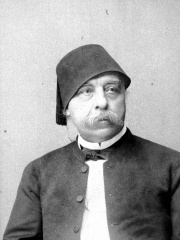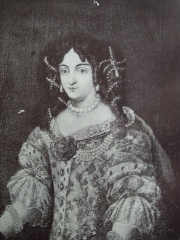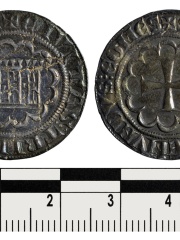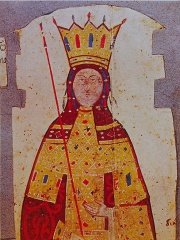Politician
Kaykhusraw II
EN.WIKIPEDIA PAGE VIEWS (PV)
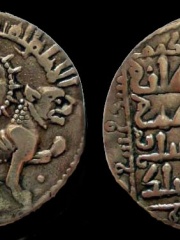
 Kaykhusraw II
Kaykhusraw II
Ghiyath al-Din Kaykhusraw ibn Kayqubād or Kaykhusraw II (Persian: غياث الدين كيخسرو بن كيقباد) was the sultan of the Seljuqs of Rûm from 1237 until his death in 1246. He ruled at the time of the Babai uprising and the Mongol invasion of Anatolia. He led the Seljuq army with its Christian allies at the Battle of Köse Dağ in 1243. He was the last of the Seljuq sultans to wield any significant power and died as a vassal of the Mongols. Read more on Wikipedia
His biography is available in 26 different languages on Wikipedia (up from 25 in 2024). Kaykhusraw II is the 5,767th most popular politician (down from 3,939th in 2024), the 535th most popular biography from Türkiye (down from 407th in 2019) and the 275th most popular Turkish Politician.
Memorability Metrics
Page views of Kaykhusraw II by language
Among Politicians
Among politicians, Kaykhusraw II ranks 5,770 out of 19,576. Before him are Carlos Salinas de Gortari, Cynisca, Robert, Archduke of Austria-Este, Almazbek Atambayev, Conrad Hilton, Tôn Đức Thắng, Archduke Eugen of Austria, Charles I, Landgrave of Hesse-Kassel, and Jacques I, Prince of Monaco. After him are Goh Kun, Axayacatl, and Karl August von Hardenberg.
Most Popular Politicians in Wikipedia
Go to all RankingsCarlos Salinas de Gortari
1948 - Present
HPI: 65.57
Rank: 5,763
Cynisca
430 BC - 389 BC
HPI: 65.57
Rank: 5,764
Robert, Archduke of Austria-Este
1915 - 1996
HPI: 65.57
Rank: 5,765
Almazbek Atambayev
1956 - Present
HPI: 65.57
Rank: 5,766
Conrad Hilton
1887 - 1979
HPI: 65.57
Rank: 5,767
Tôn Đức Thắng
1888 - 1980
HPI: 65.57
Rank: 5,768
Archduke Eugen of Austria
1863 - 1954
HPI: 65.57
Rank: 5,769
Charles I, Landgrave of Hesse-Kassel
1654 - 1730
HPI: 65.57
Rank: 5,770
Jacques I, Prince of Monaco
1689 - 1751
HPI: 65.56
Rank: 5,771
Kaykhusraw II
HPI: 65.56
Rank: 5,772
Goh Kun
1938 - Present
HPI: 65.56
Rank: 5,773
Axayacatl
1449 - 1481
HPI: 65.56
Rank: 5,774
Karl August von Hardenberg
1750 - 1822
HPI: 65.56
Rank: 5,775
In Türkiye
Among people born in Türkiye, Kaykhusraw II ranks 535 out of NaN. Before him are Callinus (-680), Theodore of Mopsuestia (350), Theodora Angelina (1190), Irene Doukaina (1066), Şehzade Mahmud (1582), and Artaphernes (-600). After him are Harpalus (-400), Ertuğrul Osman (1912), Maria of Trebizond (1405), Nubar Pasha (1825), Soranus of Ephesus (98), and Ilona Zrínyi (1643).
Others born in Türkiye
Go to all RankingsCallinus
WRITER
680 BC - 700 BC
HPI: 65.65
Rank: 529
Theodore of Mopsuestia
RELIGIOUS FIGURE
350 - 428
HPI: 65.64
Rank: 530
Theodora Angelina
POLITICIAN
1190 - 1246
HPI: 65.62
Rank: 531
Irene Doukaina
COMPANION
1066 - 1138
HPI: 65.61
Rank: 532
Şehzade Mahmud
POLITICIAN
1582 - 1603
HPI: 65.59
Rank: 533
Artaphernes
MILITARY PERSONNEL
600 BC - 500 BC
HPI: 65.58
Rank: 534
Kaykhusraw II
POLITICIAN
HPI: 65.56
Rank: 535
Harpalus
POLITICIAN
400 BC - 323 BC
HPI: 65.55
Rank: 536
Ertuğrul Osman
POLITICIAN
1912 - 2009
HPI: 65.51
Rank: 537
Maria of Trebizond
POLITICIAN
1405 - 1439
HPI: 65.49
Rank: 538
Nubar Pasha
POLITICIAN
1825 - 1899
HPI: 65.49
Rank: 539
Soranus of Ephesus
PHYSICIAN
98 - 200
HPI: 65.48
Rank: 540
Ilona Zrínyi
POLITICIAN
1643 - 1703
HPI: 65.38
Rank: 541
Among Politicians In Türkiye
Among politicians born in Türkiye, Kaykhusraw II ranks 275. Before him are Şah Sultan (1544), Ivaylo of Bulgaria (1281), Prusias I of Bithynia (-300), Bohemond VII of Antioch (1261), Theodora Angelina (1190), and Şehzade Mahmud (1582). After him are Harpalus (-400), Ertuğrul Osman (1912), Maria of Trebizond (1405), Nubar Pasha (1825), Ilona Zrínyi (1643), and Anna of Savoy (1306).
Şah Sultan
1544 - 1577
HPI: 65.89
Rank: 269
Ivaylo of Bulgaria
1281 - 1281
HPI: 65.85
Rank: 270
Prusias I of Bithynia
300 BC - 182 BC
HPI: 65.83
Rank: 271
Bohemond VII of Antioch
1261 - 1287
HPI: 65.67
Rank: 272
Theodora Angelina
1190 - 1246
HPI: 65.62
Rank: 273
Şehzade Mahmud
1582 - 1603
HPI: 65.59
Rank: 274
Kaykhusraw II
HPI: 65.56
Rank: 275
Harpalus
400 BC - 323 BC
HPI: 65.55
Rank: 276
Ertuğrul Osman
1912 - 2009
HPI: 65.51
Rank: 277
Maria of Trebizond
1405 - 1439
HPI: 65.49
Rank: 278
Nubar Pasha
1825 - 1899
HPI: 65.49
Rank: 279
Ilona Zrínyi
1643 - 1703
HPI: 65.38
Rank: 280
Anna of Savoy
1306 - 1365
HPI: 65.36
Rank: 281






